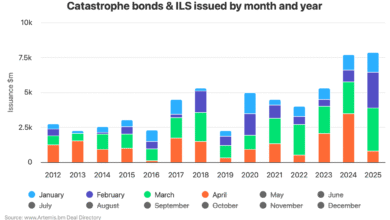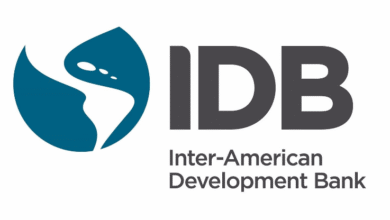Q&A: SHNS Talks With Economist Alan Clayton-Matthews
APRIL 11, 2025……Between market dips, concerned state officials and international trade implications, the tariff policies implemented and now partly paused by President Donald Trump this week have created widespread worry across Massachusetts and the nation.

Dr. Alan Clayton-Matthews, longtime economic policy analyst, senior contributing editor of economic publication MassBenchmarks, and associate professor emeritus of economics and public policy at Northeastern University, is watching a number of indicators as markets fluctuate and the state mulls over policy and funding responses to the Trump administration.
In a recent conversation with the News Service, Clayton-Matthews spoke about potential tariff implications on Massachusetts, to what degree he thinks budget- and policy-makers should respond, and how market fluctuations play into his takeaways from the first months of Q1.
This interview has been edited and condensed for clarity and length.
Q: How have you been navigating the ups and downs of this week’s tariff policy?
A: I’ve been watching the markets, that’s really easy to do. But I’ve been following other economic indicators as well. The AIM Business Confidence Index came out [this week], that was down, and the measures of consumer confidence — there are two, one in Michigan and one is the Conference Board, those have both been down. The uncertainty is mentioned everywhere.
Q: Lawmakers and economists were very alarmed about tariffs initially — then there was a pause on most of them and the markets rose again. How can that kind of uncertainty impact the long-term outlook of the state’s economy and economic policy?
A: The uncertainty affects state policy the same way it affects businesses. It’s really difficult to plan. It’s going to be difficult to construct the budget for the coming fiscal year, because it’s hard to know what the impacts will be on federal sources of funding. It’s hard to know how much the economy will slow down. If there’s a recession, that has a huge impact on state revenues, and the markets also have a huge impact on state revenues. The income tax, and the surtax on the income tax, are very sensitive to the market. For the past couple fiscal years, including this one, the surprises have been on the upside — markets have been strong and revenues have been coming in higher than expected.
But for the next fiscal year, it could be the opposite. If the stock market continues being down, the income tax revenues will fall accordingly. Capital gains revenues will fall. Surtax income receipts will fall. The [uncertainty] has also not been good for tech and other knowledge-based services, [which] pay high salaries and are important for our tax base. The trade war can affect that in several bad ways. It could lead to a national recession — that will affect Massachusetts. We have a lot of trade with Canada, including energy. And to the extent that countries fight the [trade] war and fight back, we have a surplus in the U.S. in the supply of services to other countries, and the hit back is likely to largely come in affecting our services exports.
Q: Any potential positives?
A: There is one thing on the upside. One polar outcome of this trade war is that deals do get made and tariffs get lowered worldwide — lower than they were before this all started. That would be a good thing for the United States and the world economy. That’s one pole of an outcome. The other pole of the tariff war is that the U.S. builds tariff walls against trade with the rest of the world. That would be the worst outcome, because it would leave us very isolated. The U.S. is 25% of the global economy in terms of GDP, and if we lock out the other 75% of the world economy and supply ourselves with everything we need, prices will go up, quality will go down, and the standard of living will fall. That’s a long-term outlook in a worst-case scenario.
The best-case scenario will make us a bit better off than we were before. The worst-case scenario is a real nightmare that would affect the country’s economic growth and prosperity for a long time. So it’s a very unbalanced set of outcomes. What is likely to happen is something in between, which is not good.
Q: At the height of the crash this week, some economists suggested Massachusetts lawmakers downgrade their revenue expectations immediately; some suggested they continue in onward and pause later to evaluate. Where do you stand in that realm of advice?
A: “Moderation in changes” would be my advice. We do have a rainy day fund, and it’s got a lot of resources in it. And with the surtax, we also have other funds to help with transportation and education, which can serve as rainy day sources as well. There is a distinct possibility that Trump’s policies will be reversed if Congress stands up, and if, in general, people stand up. If the universities stand up to Trump — and it looks like they may be taking that path — and if Congress takes the reins over trade policy, that will prevent a disaster. So it’s not written in stone that we’re going to be in rough shape next fiscal year. There’s a lot to keep track of, but I’m cautiously optimistic that the worst is going to be avoided. That’s going to take pushing back against the rhetoric and threats of the federal administration.
Q: If you’re a state budget writer, and you’re watching this all go down as your budget is contingent on a stable economy and adequate federal funding, how are you going about planning for that?
A: I wouldn’t cut programs and services now. I would just postpone that, because we do have resources to fill in gaps if needed. There are costs to cutting programs that have benefits, relative to keeping them where they are. For example — any cuts to K-12 or pre-K education, or to colleges and universities would probably be bad to make, because they hurt not only the current situation but future growth as well. Cuts to things like early education and child care, I think, would also be something that I would try to avoid, because we have a small labor force growth as it is, and those programs help support mothers and fathers being in the labor force, being able to work and to afford child care.
Q: Does this economic landscape remind you of or reflect any other times you’ve researched or studied?
A: Yes, it does remind me of things. But in a way, Trump is always saying he’s an outlier, and this is an outlier situation. I don’t think that there’s been any action regarding trade policy that has been as big and disruptive as this — even the Smoot-Hawley tariffs in the ’30s were less, so this is unprecedented in scope. But there have been some parallels with regard to immigration and DEI policy with the past over McCarthyism and the communist scare of the ’50s. Those parallels are the fear that is put into people and the hate that results, and that ended by people finally standing up to McCarthy, and McCarthy kind of self-annihilating. It became clear after a while that what he was spewing wasn’t factual. So that might suggest that these policies could be reversible after a year or two, if people stand up. And regarding immigration in particular, that is critical for the state’s economy. For decades now, the main cause of the growth in the labor force has been net international immigration, and that should continue to be true going forward. If immigration is shut down, the demographics will say that the population is going to fall, we’ll have fewer workers and a smaller economy, and an economy in which the population is decreasing and the labor force is decreasing is not a pretty picture.
Q: So even if this week’s tariff policies are completely reversed, Massachusetts would still see major economic impacts from federal immigration policy shifts.
A: Right. And also, the federal budget plan — it’s not clear yet, but according to the [Congressional Budget Office], if the administration is going to be able to push through the tax cuts it wants, that’s going to require spending cuts of a large magnitude that would hit Medicaid, largely. And other [programs] — it looks like DOGE has been effectively cutting the nation’s research and development funding. That’s not good for the country, in particular, for this region, because we get more than our share of research and development funding from the federal government.
Q: To connect other indicators, how have MassBenchmarks statistics been trending?
A: At the end of this month, we’re going to have the first quarter GDP estimate for Massachusetts pro-state product growth in the first quarter. [Statistics are] not all in yet. But we, for example, have payroll employment for the first two months of the quarter, and unemployment has been pretty stagnant in Massachusetts over the past year. Income growth has been pretty steady so far, so that’s good. The unemployment rate is edging up slightly, but that may be due to growing labor force, which is not a bad indication. I am worried about the flat employment growth because that’s going to mean slower output growth, slower income growth, slower spending, which affects the national economy, but also state revenues as well. But the leading indicators, at least the stock prices and the confidence measures, are not looking good right now. So that might lead to slowing growth in the second quarter. Hopefully it’ll still be positive, but I’ll know later.


